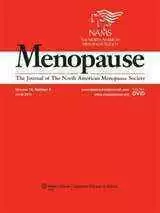Celiac.com 04/27/2015 - We know that women with infertility have higher rates of celiac disease than women who are not infertile.
 There's been some evidence to suggest that celiac disease might have impact women's reproductive health. However, the quest for more solid answers continues.
There's been some evidence to suggest that celiac disease might have impact women's reproductive health. However, the quest for more solid answers continues.
Celiac.com Sponsor (A12):
A team of researchers recently set out to assess fertility and outcomes of pregnancy among women with celiac disease. The research team included Stephanie M. Moleski, Christina C. Lindenmeyer, J. Jon Veloski, Robin S. Miller, Cynthia L. Miller, David Kastenberg, and Anthony J. DiMarino. The team crafted a retrospective cohort study in which they analyzed information gathered from patients at a tertiary care celiac center, along with information gathered from members of two national celiac disease awareness organizations.
A group of women without celiac disease served as control subjects. Both groups answered an anonymous online survey of 43 questions about menstrual history, fertility, and pregnancy outcomes. The group included 329 women with small bowel biopsy-confirmed celiac disease and 641 control subjects. Of the 970 women included in the study, 733 (75.6%) reported that they had been pregnant at some point.
In terms of pregnancy, there was no significant difference between women with celiac disease (n=245/329, 74.5%) and controls (488/641, 76.1%; P=0.57). However, fewer women with celiac disease than controls (79.6% vs. 84.8%) reported giving birth following 1 or more pregnancies (P=0.03).
Women with celiac disease had higher rates of spontaneous abortion than did control subjects (50.6% vs. 40.6%; P=0.01). Women with celiac disease also had higher rates of premature delivery, at 23.6% compared to 15.9% among controls (P=0.02).
The average age at menarche was a bit higher in the celiac disease group, at 12.7 years, than in the control group, which came in at 12.4 years (P=0.01).
This retrospective cohort analysis examining reproductive features of women with celiac disease, found that celiac disease was associated with significant increases in spontaneous abortion, premature delivery, and later age of menarche.
Source:
- Open Original Shared Link









Recommended Comments